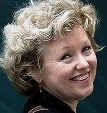
By Kathi Diamant
My wonderful father died six weeks ago. On the day he died, my sister asked me, as the published biographer in the family, to write his obituary. You’d think I’d be prepared. I’ve been a professional writer since 1990, and my father was my mentor and best friend. He was 88 years old and had been in failing health for almost a decade. For the past 40 years, since I was 18, I cried every time I said good bye to him, thinking I might never see him again. But in all that time, for all he meant to me, I never began to write anything about him, certainly nothing I could use for his obituary.
I spent the rest of that day in front of my laptop, staring at the blank screen underneath his name and the dates he lived on earth. There was too much to say, and I realized, too much I didn’t know. Grateful for the opportunity to do some research, I went online and looked up how the local papers presented their obits. I was relieved to find that each paper had a clear formula and style I could follow. No matter which newspaper I researched, I was directed to a website, Legacy.com, where people can write memorials, testimonials and send condolences to the family. In Dad’s file cabinet, I found an old resume with his professional accomplishments, and some achievements I didn’t know about.
Armed with answers, I started to write. I wrote all that afternoon and evening on the handy Legacy.com site, which offered a template to remember your loved ones. I filled in all the blanks, dutifully, in detail. And then, in the box offered for “your special memory of the deceased” I poured my heart out. As I always do with my writing, I saved it, on this occasion on the website, to let it steep for a few hours, and returned to it the next morning. I wrote all the next day. I was writing not just about my own relationship with my father, but about his relationship with the world, how he lived and how he died. I was writing for the whole family, about how we all experienced him as “The Father.”
When I finally finished, I read it to my mother and asked for her comments. I directed my sisters and brother to the site, to see if they had any suggestions or could catch any errors. When everyone had signed off, I checked the box to make William “Bill” Diamant’s Memorial page live. For the free trial period of two weeks. I was proud of the webpage as a memorial to my father, and wanted others to know what he had meant to us, so I signed up to keep the site live for a year—only $36, a deal, as I discovered.
I was shocked—shocked!—when I contacted the newspapers by phone, since their rates were unavailable online, and learned just how much it would cost to place the obituary Dad deserved.
Most obits are now processed at newspapers through the Classified Advertising department. To place an obituary, one must now pay. The cost has risen from a free listing, apparently more than a few years ago, to exorbitant realms, available only to those with lots of money, or lots of unresolved sadness or guilt. The two community papers on Anna Maria Island were still free, but the major daily in Bradenton charged $100 dollars for each 50 words, after the first 60. The newspaper in the city in which I live charges 7 cents a character, including spaces. Because Dad was a veteran of WWII, all said they would add the flag icon for free.
I counted the words on my Legacy.com obit for Dad. About 1200 words. The UT obit would cost hundreds, even thousands of dollars. If I wanted to add a photograph it would run another $150 to $250, depending on the size. Obviously, I was going to have to cut my carefully crafted essay. So I cut. And cut and cut some more. Finally, for the most expensive obit, all that was left was his name, his dates on earth and the names of his survivors, and the mortuary handling his remains. It didn’t seem worth it, or worthy of him. I placed the reduced ads, I mean, obits, in the local Florida papers, and was about to let my friends and acquaintances in San Diego read about his passing in our local paper.
At the end of each mini-obit, I included the link to my father’s Legacy.com Memorial page, where anyone could read the entire essay that said it all. I went back online to Legacy.com and made a couple of minor corrections to the text. Dad’s grandchildren called him Papa, not Poppa. I then pressed SAVE and SHARE.
The next day, I went back to Dad’s online Memorial, to see who might have visited and left new memories of him for us. To my dismay, my essay, all 1200 lovingly chosen words about my father, was gone. All the thoughts and summations written in the emotion- and spirit-soaked days following after his death had disappeared. I had lost not only my father, but my writing about him.
Every writer I know has lost work. You push the save button on the final edit of say, a 2,500 word piece, and somehow, it vanishes into the ether, never to be found or recovered. It’s devastating. We learn to deal with it. We learn to print out and otherwise back up our writing, so it never happens again.
My father’s death was a staggering loss. But I reacted more badly to losing my writing about him. Days later, when I was able to put it in perspective, I saw that the writing of his obituary had been a healing. We write, many of us, to make things better. To create meaning from our experience, to let happy endings occur where they might not have otherwise. Although we like to think that our written words help make us and those we love immortal, it isn’t true. As the Roman poet and scientist Lucretius noted: “No single thing abides, but all things flow. Fragment to fragment clings, the things thus grow until we know and name them. By degrees they melt, and are no more the things we know.”
My writing, like my father, had gone back to the eternal drift, not lost but disunited. In time I will write another essay about my father. I have learned (once, again) to back up, save, and print. But this was important lesson in dealing with loss. I know that my next writing on him will also be a healing, hopefully one less ephemeral than the first, but if not, it will again have done its job. To our San Diego Writing Women motto (We live, therefore we write) I’d like to add that we write to heal our earthly wounds, to make the world a better place. The act of writing, not the finished product, is the healing.
Kathi Diamant is the author of "Kafka's Last Love,"an award-winning biography of Dora Diamant, published in the US, UK, and in translation in France, Spain, Russia, and soon to be released in China, Brazil and Germany. She is the director of the SDSU Kafka Project, the international search for Kafka's missing writings, and an adjunct professor at San Diego State University.
My wonderful father died six weeks ago. On the day he died, my sister asked me, as the published biographer in the family, to write his obituary. You’d think I’d be prepared. I’ve been a professional writer since 1990, and my father was my mentor and best friend. He was 88 years old and had been in failing health for almost a decade. For the past 40 years, since I was 18, I cried every time I said good bye to him, thinking I might never see him again. But in all that time, for all he meant to me, I never began to write anything about him, certainly nothing I could use for his obituary.
I spent the rest of that day in front of my laptop, staring at the blank screen underneath his name and the dates he lived on earth. There was too much to say, and I realized, too much I didn’t know. Grateful for the opportunity to do some research, I went online and looked up how the local papers presented their obits. I was relieved to find that each paper had a clear formula and style I could follow. No matter which newspaper I researched, I was directed to a website, Legacy.com, where people can write memorials, testimonials and send condolences to the family. In Dad’s file cabinet, I found an old resume with his professional accomplishments, and some achievements I didn’t know about.
Armed with answers, I started to write. I wrote all that afternoon and evening on the handy Legacy.com site, which offered a template to remember your loved ones. I filled in all the blanks, dutifully, in detail. And then, in the box offered for “your special memory of the deceased” I poured my heart out. As I always do with my writing, I saved it, on this occasion on the website, to let it steep for a few hours, and returned to it the next morning. I wrote all the next day. I was writing not just about my own relationship with my father, but about his relationship with the world, how he lived and how he died. I was writing for the whole family, about how we all experienced him as “The Father.”
When I finally finished, I read it to my mother and asked for her comments. I directed my sisters and brother to the site, to see if they had any suggestions or could catch any errors. When everyone had signed off, I checked the box to make William “Bill” Diamant’s Memorial page live. For the free trial period of two weeks. I was proud of the webpage as a memorial to my father, and wanted others to know what he had meant to us, so I signed up to keep the site live for a year—only $36, a deal, as I discovered.
I was shocked—shocked!—when I contacted the newspapers by phone, since their rates were unavailable online, and learned just how much it would cost to place the obituary Dad deserved.
Most obits are now processed at newspapers through the Classified Advertising department. To place an obituary, one must now pay. The cost has risen from a free listing, apparently more than a few years ago, to exorbitant realms, available only to those with lots of money, or lots of unresolved sadness or guilt. The two community papers on Anna Maria Island were still free, but the major daily in Bradenton charged $100 dollars for each 50 words, after the first 60. The newspaper in the city in which I live charges 7 cents a character, including spaces. Because Dad was a veteran of WWII, all said they would add the flag icon for free.
I counted the words on my Legacy.com obit for Dad. About 1200 words. The UT obit would cost hundreds, even thousands of dollars. If I wanted to add a photograph it would run another $150 to $250, depending on the size. Obviously, I was going to have to cut my carefully crafted essay. So I cut. And cut and cut some more. Finally, for the most expensive obit, all that was left was his name, his dates on earth and the names of his survivors, and the mortuary handling his remains. It didn’t seem worth it, or worthy of him. I placed the reduced ads, I mean, obits, in the local Florida papers, and was about to let my friends and acquaintances in San Diego read about his passing in our local paper.
At the end of each mini-obit, I included the link to my father’s Legacy.com Memorial page, where anyone could read the entire essay that said it all. I went back online to Legacy.com and made a couple of minor corrections to the text. Dad’s grandchildren called him Papa, not Poppa. I then pressed SAVE and SHARE.
The next day, I went back to Dad’s online Memorial, to see who might have visited and left new memories of him for us. To my dismay, my essay, all 1200 lovingly chosen words about my father, was gone. All the thoughts and summations written in the emotion- and spirit-soaked days following after his death had disappeared. I had lost not only my father, but my writing about him.
Every writer I know has lost work. You push the save button on the final edit of say, a 2,500 word piece, and somehow, it vanishes into the ether, never to be found or recovered. It’s devastating. We learn to deal with it. We learn to print out and otherwise back up our writing, so it never happens again.
My father’s death was a staggering loss. But I reacted more badly to losing my writing about him. Days later, when I was able to put it in perspective, I saw that the writing of his obituary had been a healing. We write, many of us, to make things better. To create meaning from our experience, to let happy endings occur where they might not have otherwise. Although we like to think that our written words help make us and those we love immortal, it isn’t true. As the Roman poet and scientist Lucretius noted: “No single thing abides, but all things flow. Fragment to fragment clings, the things thus grow until we know and name them. By degrees they melt, and are no more the things we know.”
My writing, like my father, had gone back to the eternal drift, not lost but disunited. In time I will write another essay about my father. I have learned (once, again) to back up, save, and print. But this was important lesson in dealing with loss. I know that my next writing on him will also be a healing, hopefully one less ephemeral than the first, but if not, it will again have done its job. To our San Diego Writing Women motto (We live, therefore we write) I’d like to add that we write to heal our earthly wounds, to make the world a better place. The act of writing, not the finished product, is the healing.
Kathi Diamant is the author of "Kafka's Last Love,"an award-winning biography of Dora Diamant, published in the US, UK, and in translation in France, Spain, Russia, and soon to be released in China, Brazil and Germany. She is the director of the SDSU Kafka Project, the international search for Kafka's missing writings, and an adjunct professor at San Diego State University.












5 comments:
For all of us who have loved in this world, and then, lost the physical manifestation of that love, we feel your intense pain and release Kathy. We cannot enclose that which is ephemeral and precious into a 1200 word or three line statement at 7 cents a character. And yet, we are compelled to memorialize and immortalize these loved ones to keep them in this world a bit longer. And still, from these life-experiences, great writing is born to live on in another form. I love the lesson it teaches us and hate it too. Your father's legacy is in the lovely woman he helped create and there he is well-remembered. Thanks for putting these life lessons into words; they were poignant and piercing. It is truly tangible when we write our souls and then that effort is sucked into the black digital hole. Keep pouring it out there...
"We write, many of us, to make things better. To create meaning from our experience, to let happy endings occur where they might not have otherwise." So well said, and demonstrated, Kathi, in the conclusion you drew--that it is the process of writing that heals; not the finished product. You've penned a wonderful essay here, incredibly inspiriting (I tried to write inspiring, but it came out inspiriting, and I decided to leave it because it seemed the truer word: your writing brought spirit into the world through word. Thanks you.
Love this! I've included it on a site I've created, which is a compilation of some of the best blogs in the city.
Best of Blogs San Diego
http://bestofblogssandiego.wordpress.com
Kathi, so soory to hear about your dad. An expected death or sudden, you're never prepared. Hope spring brings easier days.
Kathi I recall a similar experience when Leah, my niece of just 7 months, died. I felt compelled to tell the world how much this child would be missed and what an impression she had made on so many people in such a short period of time. That was nine years ago and even then the obit cost a couple hundred dollars to run in the U.T. The ad people who handled it were compassionate people but I still get miffed at how some businesses don't seem to mind taking advantage of mourning relatives.
I'm sorry for your loss and I hope you will include the link to your father's memorial once you rewrite it.
Catherine
Post a Comment